Related Research Articles
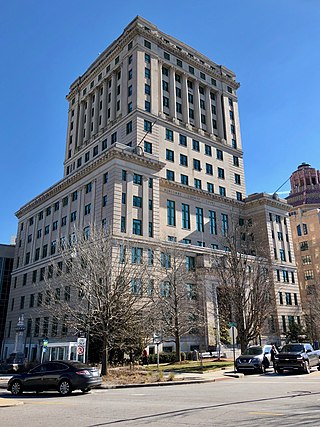
Buncombe County is a county located in the U.S. state of North Carolina. It is classified within Western North Carolina. The 2020 census reported the population was 269,452, making it the 7th-most populous county in North Carolina. Its county seat is Asheville. Buncombe County is part of the Asheville, NC Metropolitan Statistical Area.
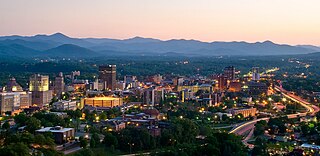
Asheville is a city in and the county seat of Buncombe County, North Carolina, United States. Located at the confluence of the French Broad and Swannanoa rivers, it is the most populous city in Western North Carolina, and the state's 11th-most-populous city. According to the 2020 census, the city's population was 94,589, up from 83,393 in the 2010 census. It is the principal city in the three-county Asheville metropolitan area, which had an estimated population of 417,202 in 2023.

Gastonia is the most populous city in and county seat of Gaston County, North Carolina, United States. It is the second-largest satellite city of the Charlotte area, behind Concord. The population was 80,411 in the 2020 census, up from 71,741 in 2010. Gastonia is the 13th-most populous city in North Carolina. It is part of the Charlotte-Concord-Gastonia, NC-SC Metropolitan Statistical Area, which is part of the Charlotte-Concord, NC-SC Combined Statistical Area.
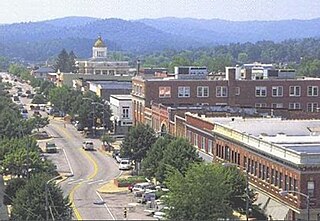
Hendersonville is a city in and the county seat of Henderson County, North Carolina, United States, located 22 miles (35 km) south of Asheville. Like the county, the city is named for 19th-century North Carolina Supreme Court Chief Justice Leonard Henderson.

Thomas Clayton Wolfe was an American writer. The Encyclopedia of Twentieth-Century Fiction states that "Wolfe was a major American novelist of the first half of the twentieth century, whose longterm reputation rests largely on the impact of his first novel, Look Homeward Angel (1929), and on the short fiction that appeared during the last years of his life." Along with William Faulkner, he is considered one of the two most important authors of the Southern Renaissance within the American literary canon. He remains an important writer in modern American literature, as one of the first masters of autobiographical fiction, and is considered among North Carolina's most famous writers.
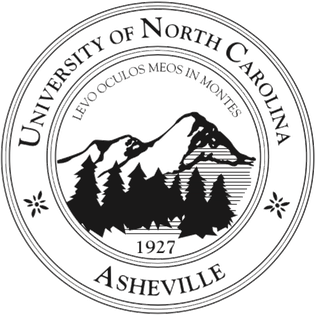
The University of North Carolina at Asheville is a public liberal arts university in Asheville, North Carolina, United States. UNC Asheville is the designated liberal arts institution in the University of North Carolina system. It is a member and the headquarters of the Council of Public Liberal Arts Colleges.

Zebulon Baird Vance was an American lawyer and politician who served as the 37th and 43rd governor of North Carolina, a U.S. Senator from North Carolina, and a Confederate officer during the American Civil War.

George Thomas Barclay was an American college football player and coach. He served as the head football coach at Washington and Lee University from 1949 to 1951 and at the University of North Carolina at Chapel Hill from 1953 to 1955, compiling a career college football head coaching record of 28–30–2. Barclay was a standout guard and linebacker at North Carolina. He was a three-year starting player from 1932 to 1934. Barclay made the first team All-Southern Conference as a guard in 1933 and 1934 and was an All-American in 1934.

Charles Ronald "Choo Choo" Justice was an American professional football player who was a halfback for the Washington Redskins of the National Football League (NFL). He played college football for the North Carolina Tar Heels and was inducted into the College Football Hall of Fame in 1961.
Ann B. Ross is an American author noted for her series of New York Times bestsellers set in her home state of North Carolina This comedic cozy mystery series features Miss Julia, whose name appears at the beginning of each title in the series. Ross also taught literature and humanities at the University of North Carolina at Asheville.

Look Homeward, Angel: A Story of the Buried Life is a 1929 novel by Thomas Wolfe. It is Wolfe's first novel, and is considered a highly autobiographical American coming-of-age story. The character of Eugene Gant is generally believed to be a depiction of Wolfe himself. The novel briefly recounts Eugene's father's early life, but primarily covers the span of time from Eugene's birth in 1900 to his definitive departure from home at the age of 19. The setting is a fictionalization of his home town of Asheville, North Carolina, called Altamont in the novel.
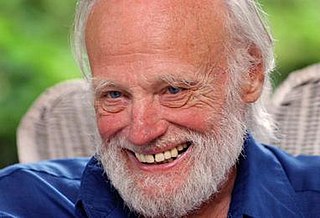
John Marsden Ehle, Jr. was an American writer known best for his fiction set in the Appalachian Mountains of the American South. He has been described as "the father of Appalachian literature".

The Loray Mill strike of 1929 in Gastonia, North Carolina, was a notable strike action in the labor history of the United States. Though largely unsuccessful in attaining its goals of better working conditions and wages, the strike was considered successful in a lasting way; it caused an immense controversy which gave the labor movement momentum in the South.
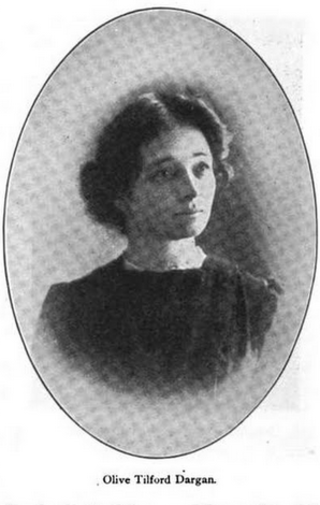
Olive Tilford Dargan was a writer and a poet. Her early works revolved around mountain poetry. Her works like: The Cycle's Rim, Lute and Furrow, Highland Annals were inspired from her love of mountains and nature. Later in her career, she published novels that focuses on racism, sexism, and fascism through her feminist visions of political activism and romanticism. Her most notable works were Call Home the Heart and A Stone Came Rolling which were written as part of her Gastonia novels.

The Culture of North Carolina is a subculture in the United States. As one of the original Thirteen Colonies, North Carolina culture has been greatly influenced by early settlers of English, Scotch-Irish, Scotch, German, and Swiss descent. Likewise, African Americans have had great cultural influence in North Carolina, first coming as enslaved people during colonial times. From slavery to freedom, they have helped shape things such as literary traditions, religious practices, cuisine, music, and popular culture.
Dillard Chandler was an American Appalachian Folk singer from Madison County, North Carolina. His a cappella performances on compilation albums were recorded by folklorist and musicologist John Cohen.
The 1968 The Citadel Bulldogs football team represented The Citadel, The Military College of South Carolina in the 1968 NCAA University Division football season. Red Parker served as head coach for the third season. The Bulldogs played as members of the Southern Conference and played home games at Johnson Hagood Stadium.
Mike W. Craven is an English crime writer. He is the author of the Washington Poe series and the DI Avison Fluke series. In 2019 his novel The Puppet Show won the Crime Writers' Association Gold Dagger award.
Clifton Freeman Cash is an American stand-up comedian from North Carolina.
References
- 1 2 3 McCormick, Liz (October 2, 2017). "LISTEN: Author Wiley Cash on Novel 'The Last Ballad'". West Virginia Public Broadcasting . Retrieved February 21, 2022.
- 1 2 Poteat, Bill (October 8, 2020). "New Wiley Cash novel set on North Carolina coast". The Gaston Gazette . Gastonia, North Carolina . Retrieved January 26, 2021.
- 1 2 3 Neufeld, Rob (September 29, 2017). "UNC Asheville grad Wiley Cash introduces new novel about Loray Mill strike". Asheville Citizen-Times . Asheville, North Carolina . Retrieved January 26, 2021.
- 1 2 3 Smith, Kathryn (November 5, 2017). "Spokane is Reading: Wiley Cash's 'A Land More Kind Than Home' is steeped in Southern flavor". The Spokesman-Review . Spokane, Washington . Retrieved January 26, 2021.
- ↑ Staton, John (December 14, 2018). "Comedian Cliff Cash talks touring, doing shows for charity and his upcoming album". Star-News . Wilmington, North Carolina . Retrieved January 26, 2021.
- ↑ Marshall, Alli (October 24, 2019). "Comedian Cliff Cash on living his best life". Mountain Xpress . Asheville, North Carolina . Retrieved January 26, 2021.
- ↑ Kelley, Pam (February 14, 2014). "The amazing Cash brothers of Gastonia tell stories, find success". Charlotte Observer . Charlotte, North Carolina . Retrieved January 26, 2021.
- 1 2 3 O'Sullivan, Joanne (January 31, 2014). "Wiley Cash wins Thomas Wolfe award, reads at Malaprop's". Asheville Citizen-Times . Asheville, North Carolina . Retrieved January 26, 2021.
- ↑ "Bio". Wiley Cash. Retrieved January 26, 2021.
- 1 2 3 Romine Powell, Dannye (October 7, 2017). "Bestselling author Wiley Cash brings Gastonia mill strike to vivid life". The News & Observer . Raleigh, North Carolina . Retrieved January 26, 2021.
- ↑ "Wiley Cash named writer-in-residence at UNC Asheville". Asheville Citizen-Times . Asheville, North Carolina. September 8, 2015. Retrieved January 26, 2021.
- 1 2 Reese, Hope (January 31, 2014). "Review: 'This Dark Road to Mercy' by Wiley Cash". Chicago Tribune . Chicago . Retrieved January 26, 2021.
- 1 2 Butler, Tray (October 2, 2017). "Mill strike of 1929 is backdrop for story of class warfare". The Atlanta Journal-Constitution . Atlanta . Retrieved January 26, 2021.
- 1 2 "Gothic Thriller Takes Two Young Girls Down A 'Dark Road To Mercy'". National Public Radio Weekend Edition . February 2, 2014. Retrieved January 26, 2021.
- ↑ Yarbrough, Steve (May 8, 2012). "Wiley Cash's "A Land More Kind Than Home"". Washington Post . Washington, D.C. Retrieved January 26, 2021.
- ↑ "100 Notable Books of 2012". New York Times . New York City. November 27, 2012. Retrieved January 26, 2021.
- ↑ Charles, Ron (January 28, 2014). "Books: 'This Dark Road to Mercy,' by Wiley Cash". Washington Post . Washington, D.C. Retrieved January 26, 2021.
- ↑ Rowland, Amy (November 17, 2017). "A Novelist Revisits a Deadly Textile Union Strike From 1929". New York Times . New York City . Retrieved January 26, 2021.
- ↑ Reggie Scott Young; Wiley Cash; Marcia Gaudet (2009). This Louisiana Thing that Drives Me: The Legacy of Ernest J. Gaines. University of Louisiana at Lafayette Press. ISBN 978-1-887366-83-0.
- 1 2 Kloer, Phil (September 13, 2021). "Book review: Wiley Cash spins a web of deceit in 'When Ghosts Come Home'". Atlanta Journal-Constitution . Retrieved January 6, 2024.
- ↑ Wiley Cash (March 27, 2012). A Land More Kind Than Home. William Morrow. ISBN 978-0-06-219677-4.
- ↑ Wiley Cash (January 28, 2014). This Dark Road to Mercy: A Novel. William Morrow. ISBN 978-0-06-208827-7.
- ↑ Wiley Cash (October 3, 2017). The Last Ballad: A Novel. William Morrow. ISBN 978-0-06-231313-3.
- ↑ "2013 PEN/Robert W. Bingham Prize". July 25, 2013. Retrieved January 26, 2021.
- ↑ Flood, Alison (October 27, 2014). "Robert Harris's novel about Dreyfus affair named thriller of the year". The Guardian . London . Retrieved January 26, 2021.
- ↑ Kellogg, Carolyn (January 21, 2015). "Finalists for the 2015 Edgar Awards are announced". Los Angeles Times . Los Angeles . Retrieved January 26, 2021.